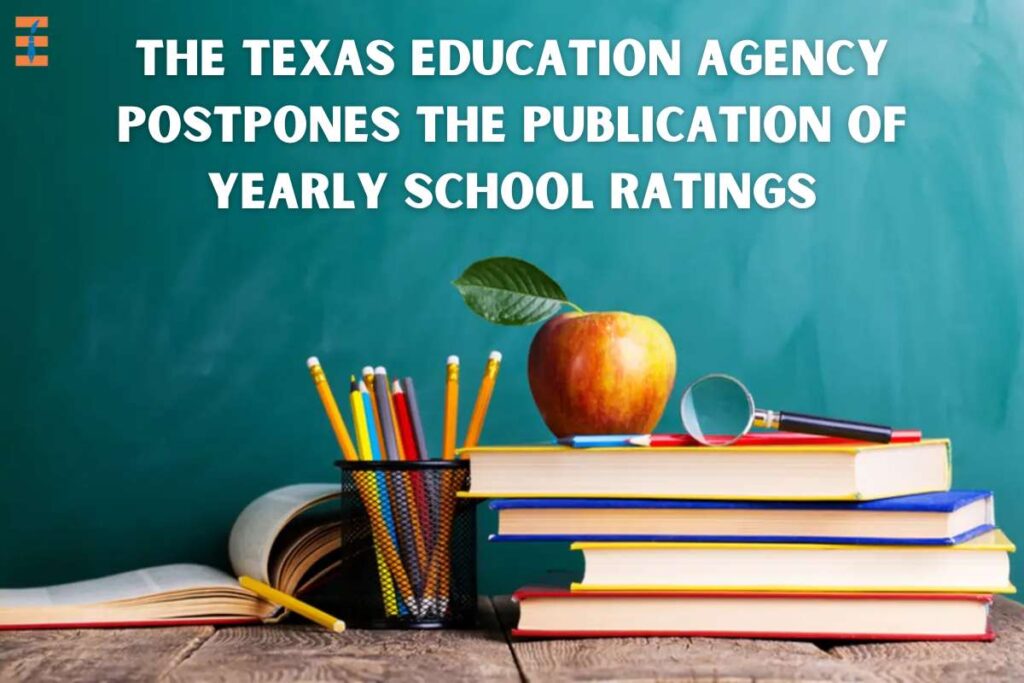According to a revised version of the agency’s accountability system, the Texas Education Agency said on Tuesday that it will postpone the announcement of its annual school ratings in order to take into consideration score adjustments that could have a detrimental impact on schools.
The Texas Education Agency, which was due to provide the ratings on September 28, now anticipates that they will be made public some time early in October. It’s unclear if the updated rankings will be released prior to the upcoming special session of lawmakers on public education and school vouchers, which is anticipated to be revealed before the end of the year and will take place in Austin.
The postponement comes in response to months of protests from state-wide school administrators who said the Texas Education Agency’s new accountability system would cause unjust ratings drops in their schools.
According to the system, campuses and districts are given an A-F grade depending on how well they prepare students for life beyond high school, graduation rates, academic development from year to year, and student performance on the state’s standardised test. These results are used by parents and community people to assess how well their local school systems are educating their kids.
The Texas Education Agency claimed that the reason for the delay in releasing this year’s ratings was to make changes to the “academic growth” category. As students started performing better on the state test after returning to the classroom following the pandemic, school districts saw a significant increase in that category in 2022. If the agency failed to take test score stabilisation and other factors into consideration, schools could experience sharp drops in their ratings.
The changes we are making this year will guarantee that the A-F system continues to serve as a tool for parents and educators to help our children, Texas Education Agency Commissioner Mike Morath said in a statement on Tuesday. “The A-F system is designed to properly reflect how well our schools are meeting those high expectations, and the adjustments we are making this year will ensure it continues to be a tool for parents and educators to help our students,” he said.
Texas Education Agency delays release of annual school ratings
School administrators from all throughout the state have objected against one change in particular since the new accountability rating system went into force. Previously, high schools would receive an A under the College, Career, and Military Readiness section of the ranking system if 60% of their seniors enrolled in college, chose a non-college career, or joined the military. According to the revised grading system, which was unveiled in January, that bar would be raised and 88% of a high school’s seniors would need to satisfy one of those requirements.
Since schools are still recuperating from the disruptions to learning caused by the pandemic, several school leaders claimed that the shift in the benchmark was too significant and difficult to achieve.
A month ago, a number of Texas school districts filed a lawsuit against the TEA to prevent the organisation from using the new scoring system because they believed the modifications would lower their test scores.
According to Frisco Independent School District Superintendent Mike Waldrip, “Accountability is an important orienting aspect for a school district; however, the arbitrary application of new measures without the required advanced notice will potentially give the appearance that schools across the state, including Frisco ISD, are declining.” To arbitrarily move the goalposts would be unfair to our teachers and children.
According to this year’s modifications, schools who increased their CCMR score but did not meet the state’s new criteria may potentially see a decrease in their overall rating, according to Matthew Gutierrez, superintendent of Seguin ISD.
According to Gutierrez, schools require time to steadily enhance their CCMR rankings.
Also Read: Texas’s New Legislation Shaping Education










